What fitness tech and apps do the Android Central staff actually use?

When it comes to the best fitness trackers or fitness-themed smartwatches, we'll test each watch for a couple of weeks to get a clear sense of how they work. But then we'll move on to the following review, and that watch will get shoved in a bin with other tech or shipped back to the company. Even if a watch or its fitness app impresses us, that doesn't always mean we'll keep using it.
As part of my marathon training, I surveyed my colleagues on the fitness tech they use to stay fit. I've reviewed a couple of cheap fitness bands, but my colleagues have spent years testing the best (and worst) offerings from Garmin, Samsung, Apple, Fitbit, TicWatch, and so many other brands. With a wealth of free review units to choose from, these are the ones they actually kept using — or even bought with their own money.

Al Sacco, content director
Al Sacco manages all editorial operations for Android Central, iMore, and Windows Central, making sure the content trains run consistently and on time and always ensuring all stories meet the high standards loyal readers have come to expect. He is passionate about reading and writing, eating and drinking (mostly coffee and Belgian beer), and the Red Sox. He resides in Boston.
Withings Body Cardio Scale, Withings Health Mate mobile app
Some folks might not consider a scale a piece of fitness tech, but the Withings Body Cardio Scale is "smart" and connected. It's one of just a few gadgets that directly helped me get significantly healthier. And it also helps me stay on track. One of the best things about this particular scale is the mobile app that tracks all your health trends and integrates with your phone's native health and fitness apps. It provides granular data that's easy to understand and track.
There are multiple models of Withings scales, and this is one of the more expensive ones at nearly $200. But for me, it's been well worth the cost. It tracks trends in your cardio activity, vascular age, body mass index (BMI), body fat percentage, both muscle and bone mass, and water weight, among other things. Of course, the scale doesn't do the hard work for you; it just tracks your progress. But if you're serious about losing weight or maintaining your current weight and understanding your personal health metrics, Withings' Body Cardio scale is an indispensable tool.
Be an expert in 5 minutes
Get the latest news from Android Central, your trusted companion in the world of Android

Andrew Myrick Freelance Contributor
Andrew is a freelance writer at Android Central. He enjoys everything to do with technology, including tablets, smartphones, and everything in between. Perhaps his favorite past-time is collecting different headphones, even if they all end up in the same drawer.
Apple Watch Series 6 (Soon to be Series 7)
With feet planted firmly in both the iOS and Android camps, I've always wanted to find and use a smartwatch that would work across the board. The Fitbit Versa looked to be the way, but it fell a bit short for me, and I went back to my trusty Series 6. The biggest reason is the integration with my iPhone and Mac, as I can just double-tap the side button to unlock 1Password throughout the day, and it just works.
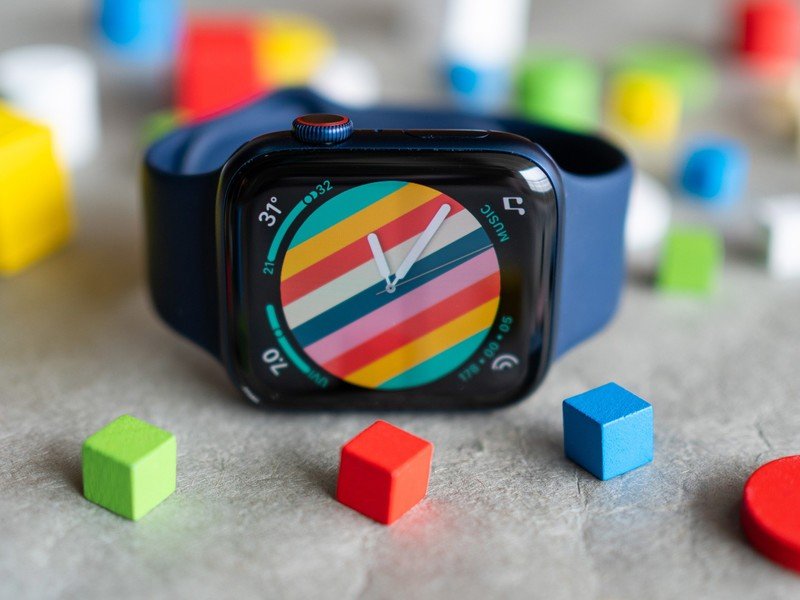
The Series 7 is around the corner, and despite the minor upgrades in store, this will be my next smartwatch. When I want them, I receive notifications and can easily compete with my other friends who own and use an Apple Watch, and Apple Health integrates with many of the best health accessories. This includes the likes of the Withings Body Cardio Scale that I recently picked up to lose a bit of weight before my wedding. The Apple Watch nags me when it needs to, leaves me alone when I want it to, and keeps track of all of the health metrics that are important to me.
I'm not someone who hits the gym or works out regularly. But the Apple Watch does just enough to get me to stand up throughout the day or to move around if I've had a particularly busy (or lazy) day. I had big hopes for the Galaxy Watch 4 to take over the reins, but it fell flat and disappointed me — as it did for Chris (see below). Maybe that will all change after Wear OS 3 comes to more smartwatches or the fabled Pixel Watch becomes a reality. But until then, the Apple Watch is my most important piece of fitness tech.
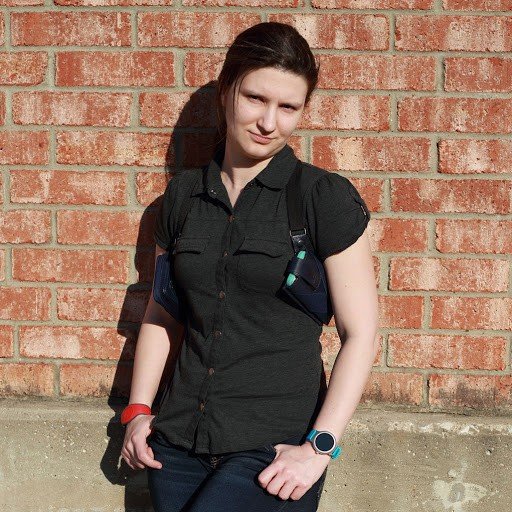
Ara Wagoner Senior Writer
Ara Wagoner reviews phones and pokes YouTube Music with a stick. When she's not writing help and how-to's, she's running around Walt Disney World with a Chromebook. You can follow her on Twitter at @arawagco. If you see her without headphones, RUN.
Galaxy Watch 4, Samsung Health
I'm going to say something that's probably a little sacrilegious: I don't care about fitness tech. My smartwatches were bought so that I could control my music without reaching for my phone every time — which ended up being one of the bigger features for my dad, too when he tried it and get notifications since I don't have my phone in my pocket when working at home. Tracking steps was a nice little bonus, but it wasn't why I bought the watch.
Heart rate tracking was also a bonus, but it's one you must take with a teaspoon of salt: almost all smartwatches don't accurately peg your resting/normal heart rate, but the up/down between resting/moving/exercise is worth keeping an eye on.
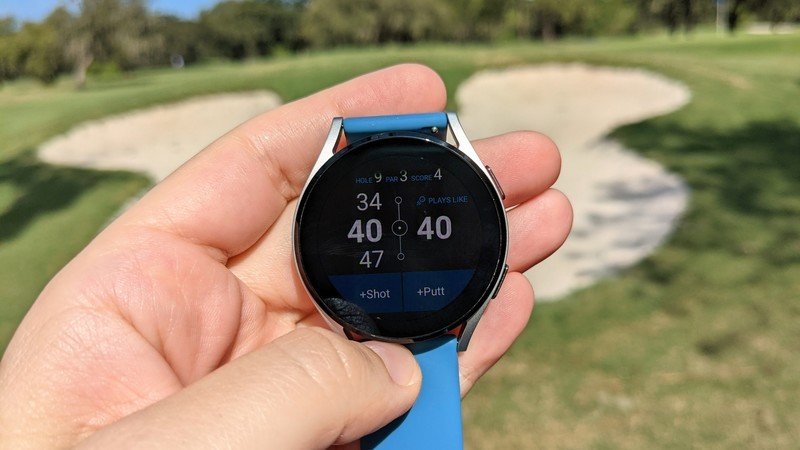
But then insomnia came and bit me in the ass, and then smartwatches became critically valuable for one thing: telling me how much of my tossing and turning was actually sleep and how much was me drifting in and out of consciousness. While Wear OS watches were just fine for steps, HR, notifications, and so on, they were just too bulky to sleep in every night. That's why I migrated back to Galaxy Watch Active whenever I'd get bored of a new watch.
The Galaxy Watch Active and Samsung Health made it easy to see the day's data right on my wrist, but Samsung's notification system was a pain, and its app compatibility was crap. Enter the Galaxy Watch 4 with Wear OS, and it's both easy to wear to bed and has my favorite apps like Google Keep, Accuweather, and Google Pay for tap-to-pay.

Chris Wedel Freelance Contributor
Chris Wedel is a fan of all things tech and gadgets. Living in rural Kansas with his wife and two young boys makes finding ways to get and stay online tricky. By utilizing his years of experience with the tech and mobile communications industries — success is assured. When not conquering connectivity challenges and testing new gadgets, he enjoys cruising a gravel road in his UTV with some good tunes.
Withings Body+ scale, TicWatch Pro 3 Ultra, TicExercise, Google Fit, Fitbod, Sony WF-1000XM4 earbuds
I've always loved being active. However, when I was younger, it wasn't something that I had to make an effort to do because I was always playing some sport. Now, adulting gets in the way. But that doesn't mean I have given up on being active. The primary difference now is I have less time available to squeeze in the activities I want. So when I do find the time to exercise, I have to be efficient and focused.
In the past month or so, I have put a bigger effort into exercising regularly. Most of the tech that I am incorporating into my workouts are things I've had a version of for years. About seven years ago, I really got into running, so I used a MotoActv smartwatch during that time. Now, to help me break in a new pair of running shoes, I'm using the TicWatch Pro 3 Ultra along with my Sony WF-1000XM4 earbuds because I need my tunes.
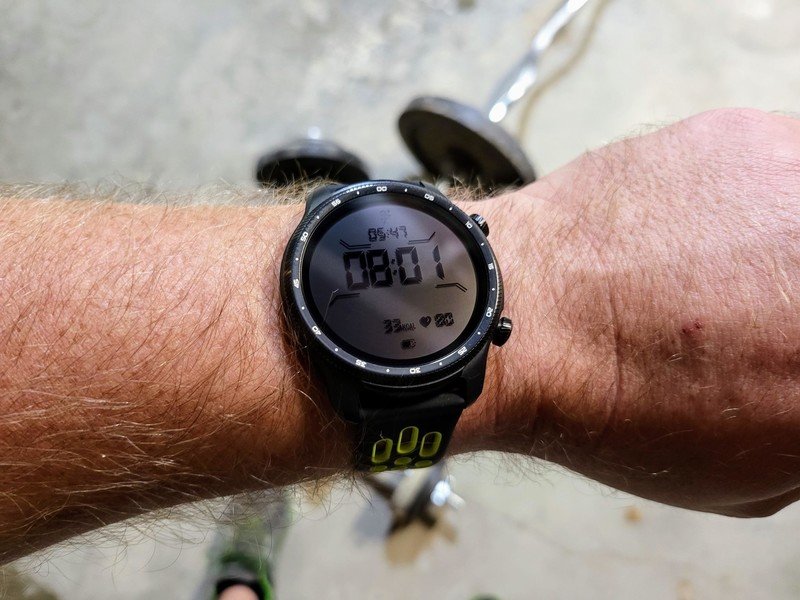
I thought the Samsung Galaxy Watch 4 would replace it, but unfortunately the watch let me down. The Pro 3 Ultra does everything I need it to, and it syncs up wonderfully with Google Fit, which I rely on to keep the data from all of the tools I use in one place. When I go for a run, I use the watch's TicExercise because it gives me lots of great data, and it utilizes the highly visible top display of the Pro 3 Ultra.
Complementing the cardio I get from running, I also do some strength training with free weights in my garage. I have a decent collection of equipment, and I use Fitbod to help build out lifting plans. I like how there are different fitness goals within the app and how it will create the next exercise session based on how tired a muscle group is. I only wish that it integrated with Google Fit, but that is supposed to be on the way.

Courtney Lynch Freelance contributor
Courtney Lynch is a freelance writer at Android Central. She's obsessed with all things health, fitness, and music. At any given time, she can be found checking out the latest and greatest gadgets while simultaneously petting her dog and sipping iced coffee.
Garmin Vivoactive 4, Garmin Connect app, Fitbit Luxe, Fitbit app
While I've always been interested in wearable technology, there's something even more fascinating about fitness trackers and smartwatches that provide you with important details regarding your overall health.
I've tried everything from advanced running watches such as the Garmin Forerunner 945 to basic activity trackers like the Xiaomi Mi Band 4. While I've tested and reviewed a fair share of devices during the past couple of years at Android Central, I keep coming back to Garmin and Fitbit.
On a day-to-day basis, I don't need much from my wearable. As long as I can keep track of my steps, heart rate, and sleep patterns, I'm pretty content. That's probably why I regularly wear the Garmin Vivoactive 4 as my go-to fitness smartwatch. Whether I'm going for a brisk walk on my lunch break or hitting the elliptical, it offers the tracking features I need. Not to mention that I get almost a full week of battery life on a single charge, which is hard to beat.
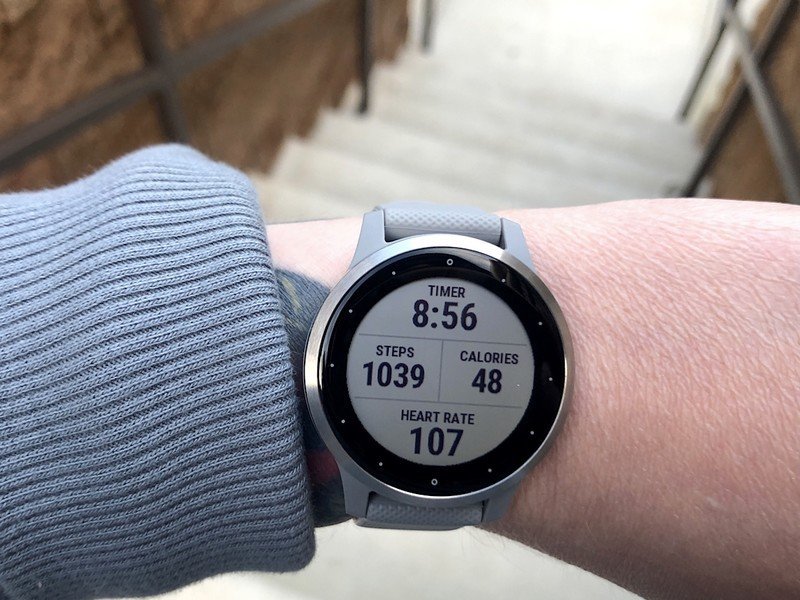
I can also see the value in a more straightforward fitness tracker, like the Fitbit Luxe, for example. I recently reviewed this tiny but mighty device, and I was pleasantly surprised. But, unfortunately, the display is really small, which makes it a bit impractical for daily use. This is especially true for people who frequently interact with their devices throughout the day.
With that said, I really enjoyed using the Fitbit app. It was easy to navigate the app to review my metrics for the day. I always left the app feeling like I had a clear idea on how to improve certain areas of my health and fitness. Eventually, I'll probably give in and dabble with a Fitbit smartwatch, like the Sense or Versa 3.
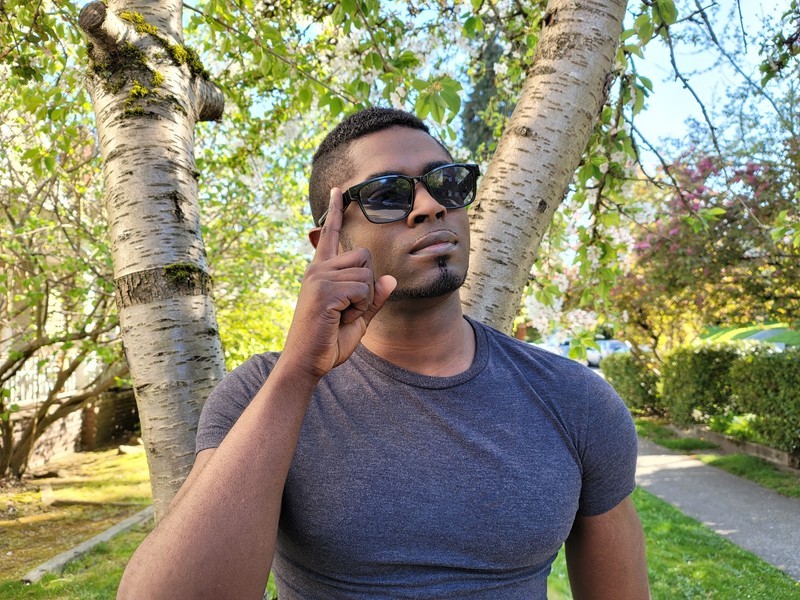
Derrek Lee News Editor
Derrek is a long-time Nokia and LG fanboy who loves astronomy, videography, and sci-fi movies. When he's not working, he's most likely working out or smoldering at the camera.
TicWatch E3, Fossil Gen 5, Google Fit
I'm a pretty active person. I am at the gym at least four times a week. I jog nearly every day, swim once a week, and play a LOT of Dance Dance Revolution. That said, I'm not actually all that concerned with tracking my fitness.
I always have at least one of my smartwatches on me, but I'm fairly passive about my fitness tracking. If I run, the watch will usually start tracking automatically. Sometimes I'll manually turn on tracking while I'm weightlifting, but I often forget. I used to use MyFitnessPal to track my meals, but that got cumbersome.
So while I'm pretty active, I'm also quite lazy.
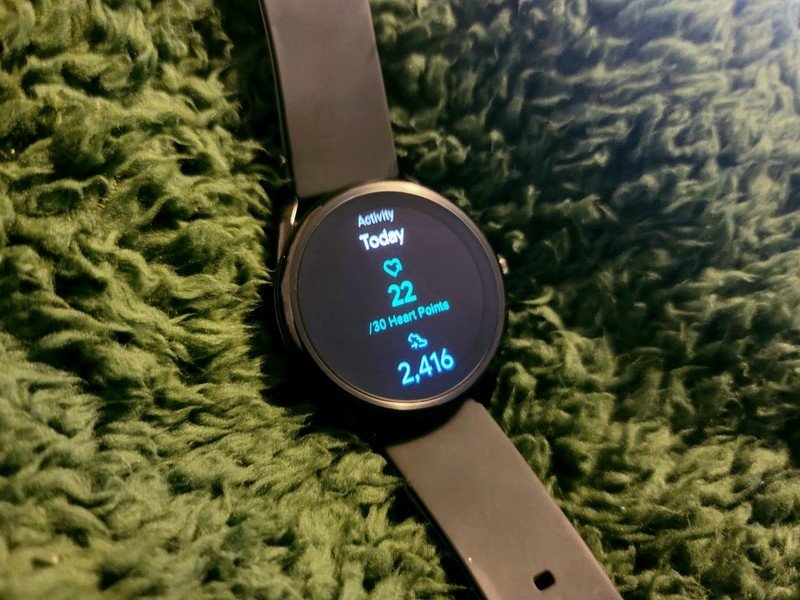
That said, I do make sure to track my sleep with my watches, and sleep is an integral part of anyone's fitness journey. Unfortunately, I don't get enough sleep, and my watches are a constant reminder of just how poor my sleep habits are. Fortunately, both my smartwatches feature automatic sleep monitoring. Of the two, I tend to use the Fossil Gen 5 for tracking since it seems a bit easier to understand. In contrast, I use my TicWatch E3 throughout the day since it's better at automatically tracking specific workouts and has SpO2 monitoring. And the best part is that they both sync with Google Fit, so I don't have to manage a ton of disparate apps (I'm looking at you, Samsung Health).
I do, however, want that Withings Body Cardio Smart Scale to track my weight and body composition. I feel like that would help get me more focused on what I need to work on and hopefully make me more active in tracking my workouts.

Jeramy Johnson Interim Managing Editor
Jeramy is proud to help Keep Austin Weird and loves hiking in the hill country of central Texas with a breakfast taco in each hand. When he's not writing about smart home gadgets and wearables, he's defending his relationship with his smart voice assistants to his family. You can follow him on Twitter at @jeramyutgw.
Fitbit Inspire 2, Fitbit Charge 5, Garmin Forerunner 745, Nike Run Club
I've been fortunate enough to try out a lot of fitness gear during my time here at Android Central — just think of a fitness band or fitness-focused smartwatch, and I've probably tried it, written about it, or reviewed it. While I enjoy most of these products, I keep going back to two companies in particular — Fitbit and Garmin.
I'm not a big fan of "smartwatches" in general, but I am a big fan of fitness wearables. All I really want most days is to keep track of my steps, sleep, heart rate, and overall activity, and a standard band like the Inspire 2 or Charge 5 is perfect for that. So most days, that's what you'll find on my wrist.

When I'm training for a race or putting in more miles running, I like to go with something like the Garmin Forerunner 745. Garmin's GPS and tracking are top-notch, their watches are easy to read in the sunlight, and their buttons are easy to manipulate when I sweat (and I sweat A LOT while running). It has just enough "smarts" with the ability to read and perform basic responses to notifications, and NFC means I can pay for things without my wallet. Honestly, I don't need more than that.
As far as fitness apps go, I've tried a lot of these too, but I tend to rely on either the Fitbit or Garmin apps, depending on which device I'm wearing that day/week/month. I check in on Google Fit on occasion, but it just doesn't do that much. Nike Run Club is another app that I'm fond of, and I like that I can cross-link from Garmin to it to kill two birds with one stone.
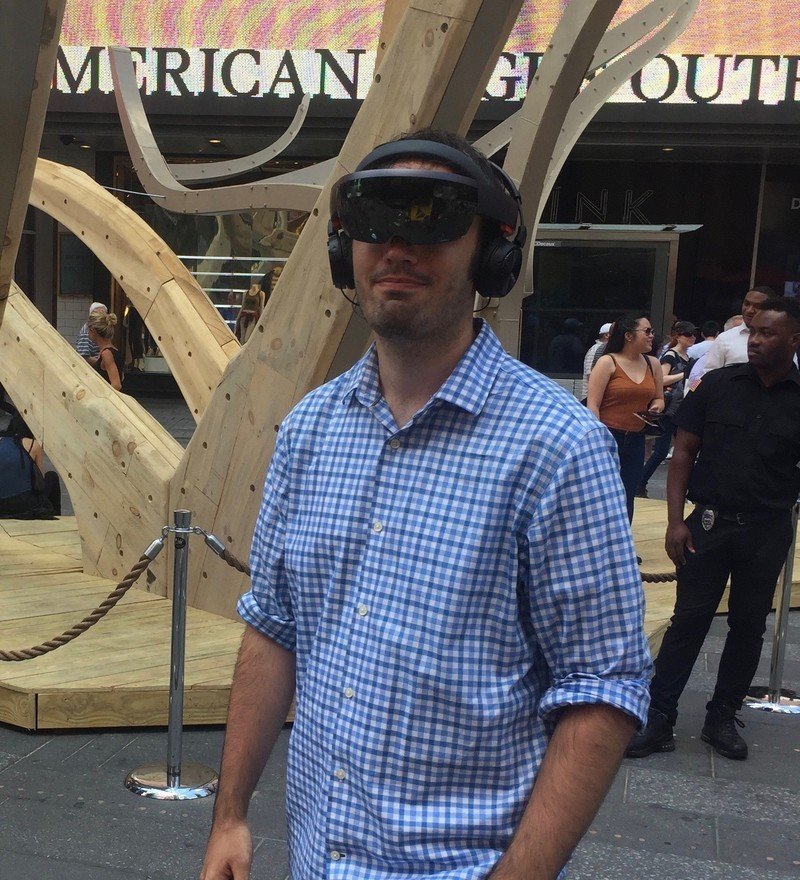
Michael Hicks Senior Editor
Michael is a former ebook dev turned tech writer whose career arc took him from VR to wearables, emerging tech to gaming guides, before arriving at AC to cover Android, Oculus, Stadia, and smart homes, among other things. A Bay Area native, he loves underperforming sports teams, running, and tormenting his friends as the DM for D&D and Star Wars RPG campaigns.
Strava, Spotify, smartwatch TBD
I'm late to the smartwatch fitness train. I learned recently that I need to track heart rate and other metrics to train correctly for long races, not just mileage. I'm currently enjoying swapping between a Fitbit Sense, Garmin 945 LTE, and Coros Pace 2, but the jury's still out on which is my favorite. Until last year, I ran with my wrists free, using my phone in my pocket as my GPS tracker.
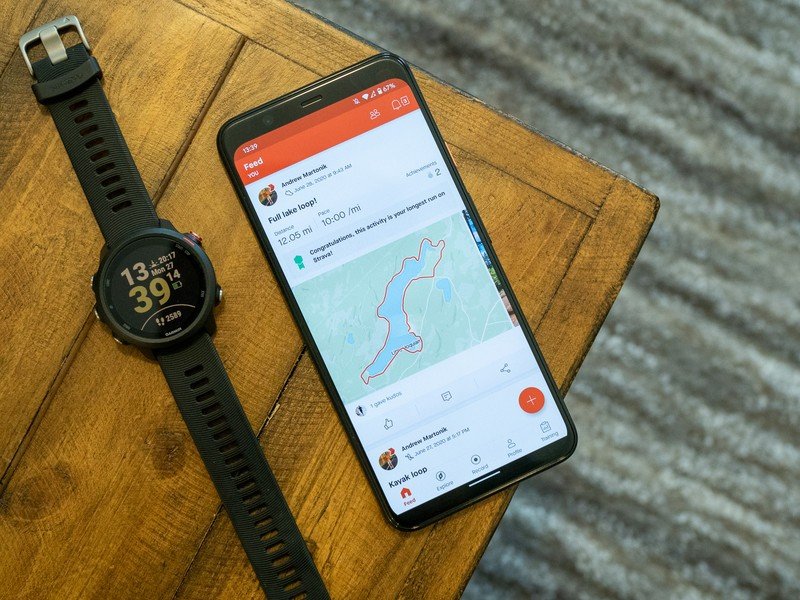
Over the last five years or so, I've relied solely on running apps to track my fitness goals: first Runtastic Pro/ Adidas Running, then Strava. They give you your pace and mileage during a run, then some handy stats post-run. My personal favorite is Strava's running segments, which challenge you to beat your times (or strangers' times) on specific portions of your route. I run best when I'm competing with others, but COVID made that a challenge. So competing with myself is the next best alternative.
My other fitness "tech" that I can't do without is music subscriptions like Spotify. Running can be fun when you get in the zone, but when you're training for long races, you have to run even when your body is not feeling it. And it's music that keeps me pumped when I'm struggling. I used to rely on my hard-copy collection of MP3s, but self-made running playlists get stale the 50th time you've listened to the same high-tempo songs. Spotify Premium lets me download the latest songs or steal other people's workout playlists.

Shruti Shekar Senior Reporter
Shruti Shekar is Android Central's senior technology and telecom reporter and also the second Canadian on the team. She was born in India, brought up in Singapore, but now lives in Toronto and couldn't be happier. She started her journalism career as a political reporter in Ottawa, Canada's capital, and then made her foray into tech journalism at MobileSyrup and most recently, at Yahoo Finance Canada. When work isn't on her mind, she loves working out, reading thrillers, watching the Raptors, and planning what she's going to eat the next day.
Apple Watch Series 5
Now I know what you're all thinking: Why is a reporter who writes for Android Central talking about an Apple Watch?! But to be fair, I've been wearing this watch since before I joined AC, and to be honest, it's been one of the greatest watches I've used to help me focus on my fitness journey.
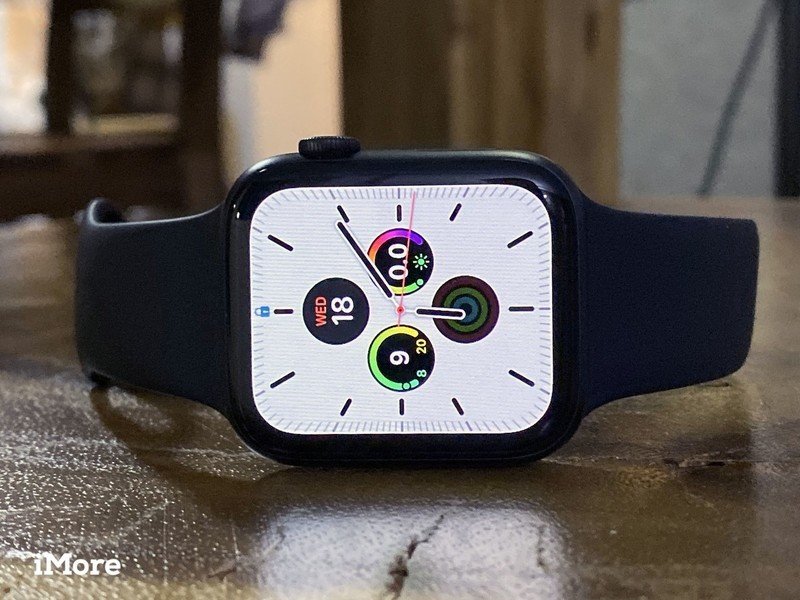
I've been working out for several years and never used a watch. But in April 2019, I started spinning and changed up my routine heavily. I really wanted a way to monitor my progress and was looking into getting a fitness band. After doing some research, I settled with the Apple Watch. I used to keep track of my progress using a pen and paper and figure out my stats myself, but I genuinely love how this watch helps me figure out what goals I want to meet and if I'm actually hitting them. I love how I can do challenges with my friends, and I love getting notifications when I meet my goals. I especially like seeing health stats in the Health app, specifically monitoring my heart rate and how many calories I burn every day and on average.
A few other features of the watch that I've liked over the past couple of years are the mindfulness notifications, asking me to take moments in my day to breathe, and as well I want to learn more about my respiratory health.
That being said, I'm always open to trying out other apps and watches. But for now, I very much like the integration of my watch to my phone and monitoring my progress.

Michael is Android Central's resident expert on wearables and fitness. Before joining Android Central, he freelanced for years at Techradar, Wareable, Windows Central, and Digital Trends. Channeling his love of running, he established himself as an expert on fitness watches, testing and reviewing models from Garmin, Fitbit, Samsung, Apple, COROS, Polar, Amazfit, Suunto, and more.
